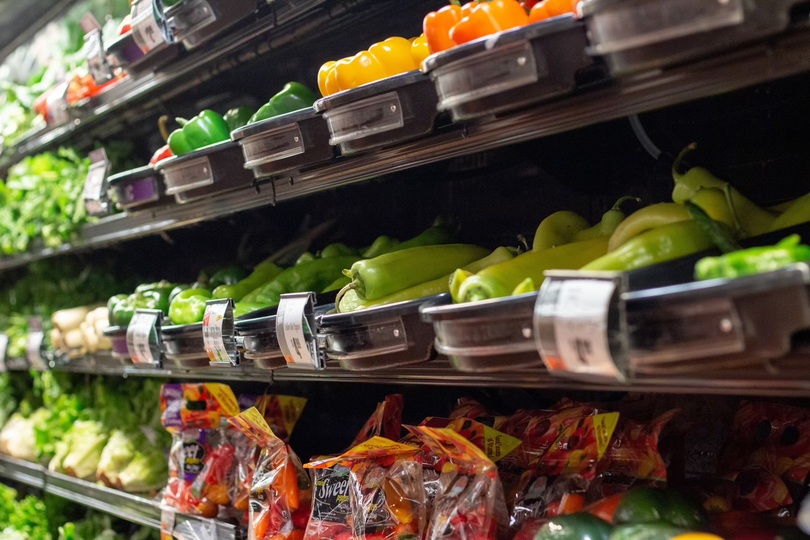Opinion: New SNAP cuts wage war on low-income Americans

Our columnist argues Trump’s $186 billion SNAP cut is a direct attack on the working class. With 2.4 million Americans at risk of losing food assistance, families already surviving on just $6.20 a day will be forced to do more with less. Meghan Hendricks
Get the latest Syracuse news delivered right to your inbox.
Subscribe to our newsletter here.
Millions of Americans are about to feel the impact of new Supplemental Nutrition Assistance Program restrictions. Cuts to these benefits will inarguably make it harder than it already is to put food on the table.
Trump’s recently-passed “One Big Beautiful Bill Act” will cut $186 billion from the program through 2034, discontinuing vital support for as many as 2.4 million Americans.
These restrictions are a direct attack on the working class.
Delaying the cuts is like treating SNAP recipients as pawns in a political game; they’re left uncertain and anxious, their basic needs weighed against the convenience of protecting votes.Emma Donohue, Columnist
The administration isn’t considering people who live in food deserts and lack reliable transportation to a grocery store, let alone those who work extra hours, take care of kids or rely on SNAP for a multitude of other reasons. Their need for supplemental income to feed their families shouldn’t be judged by wealthy and fortunate government officials who’ve not faced the same struggles.
In New York, 15% of the state population are SNAP recipients, or one in seven people. Of these recipients, over 52 percent are in families with children and over 46% are in families with elderly or disabled members. In Syracuse, 29.4% of residents, or more than 17,800 households, receive SNAP benefits.
This isn’t the first time the Trump Administration has restricted access to food stamp benefits. In 2019, the administration made it harder for states to waive the work requirements needed to qualify for SNAP in areas with high unemployment rates.
Even before these most recent cuts, recipients of SNAP benefits were expected to feed themselves on an average of just $6.20 a day. That number doesn’t stretch far when the cost of living and groceries continues to climb, forcing people to make impossible choices between fresh produce and cheaper, less healthy options. With these added restrictions, the already-present cracks in the program continue to widen.
In addition to cutting benefits, the bill shifts massive costs onto the states. For the first time in history, states must cover up to 15% of SNAP costs, along with a large jump in non-SNAP expenses.
As a result, state governments likely have to cut other essential programs – like housing and public safety – increase taxes or make it harder than it already is for people to qualify. States with higher error rates, or the percentage of benefits incorrectly paid out, could owe billions.
Micah Orieta, an organizer at Syracuse-Onondaga Food Systems Alliance, said New York’s Office of Temporary and Disability Assistance is “awaiting guidance” from USDA before making policy changes.
SOFSA’s partners at Feeding New York State believe “it’s likely that more and more individuals will begin noticing harmful changes to their SNAP access in the coming months or early next year,” they stated.
California, for instance, may owe 1.8 billion by 2028. High costs may result in states failing to make up the difference and slashing eligibility or SNAP itself altogether. Citizens will be forced to turn to already-overburdened food banks trying to fill a gap they can’t possibly meet.
It’s still unclear how these changes will affect people in the upstate New York and Syracuse area, specifically.
Orieta also expressed that they believe delaying the cuts until later this year or even next year is a “deliberate move so that the change doesn’t impact how folks vote in the upcoming elections.”
Delaying the cuts is like treating SNAP recipients as pawns in a political game; they’re left uncertain and anxious, their basic needs weighed against the convenience of protecting votes.
A study conducted by Syracuse University’s Lerner Center for Public Health Promotion found that SNAP participation is associated with a “population-wide average decline of 1-2 percentage points in the risk of premature mortality.” The study also discovered that policy restricting access to SNAP could increase the risk of premature mortality.
In addition to the financial cuts, the Secretary of Health and Human Services Robert F. Kennedy Jr. has advocated for states to increase restrictions on what people can purchase with their food stamps. Twelve states, including Texas, Colorado and Florida, have already passed waivers to implement these restrictions, and other states are being encouraged to do so.
Restricting what people can buy with SNAP is often framed as a health measure, but it ignores the bigger picture. Often, the real barriers to a healthy diet are affordability and access rather than personal choice.
Fresh fruits and vegetables are more expensive and spoil quickly, and aren’t always accessible. Processed foods, though, are cheap, widely available and have longer shelf lives. Aside from the issue of nutrition, restricting what people can purchase also takes away the small things that help people feel less ostracized, like being able to walk into school with an energy drink or enjoy a soda at lunch.
Food is a basic human right. Rather than improving a program that ensures access to this right and has proven benefits for health and stability, lawmakers are weakening it, framing it as a way of saving money and promoting nutrition. SNAP was designed to ensure those who already struggle to get by can at least have the stability of a meal.
Cutting benefits and limiting choice forces people to do more with less, strips away their dignity and ignores the systemic and structural barriers that shape what ends up on their plates. If leaders were serious about improving health, they’d invest in making healthy food affordable and accessible rather than punishing the people who rely on this crucial support.
Emma Donohue is a sophomore studying political science and citizenship and civic engagement. She can be reached at efdonohu@syr.edu.




